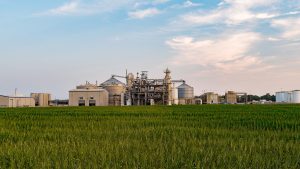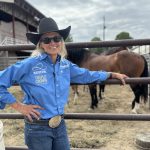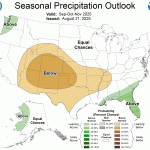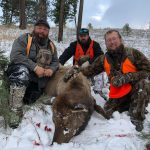Ethanol, beef industries criticize Brazil at USTR hearing

The Renewable Fuels Association, Growth Energy, the National Corn Growers Association, the National Cattlemen’s Beef Association and the United States Cattlemen’s Association all criticized Brazil at a Section 301 hearing Wednesday.
“RFA strongly believes a thorough investigation is justified and necessary, and we commend the U.S. trade representative for bringing much-needed scrutiny to Brazil’s prejudicial and unreasonable actions,” RFA President and CEO Geoff Cooper testified. “Over the past eight years, Brazil has implemented tariff and non-tariff barriers specifically designed to block U.S.-produced ethanol from entering the Brazilian marketplace. Whereas Brazil was once the world’s largest importer of U.S. ethanol, the market has disintegrated over the past five years due to the imposition of numerous barriers.”
Cooper added, “Brazilian ethanol has had virtually unfettered access to the U.S. market for the past 14 years, facing only a 2.5% ad valorem duty. In fact, policies like the RFS and state low carbon fuel programs actually give preferential treatment to Brazilian sugarcane ethanol imports over U.S. grain-based ethanol.”
| Cooper said RFA supports the following actions: |
| Continuing negotiations focused on permanently removing the Brazilian tariff on imported ethanol; Until the Brazilian tariff on U.S. ethanol is removed, fully enforcing the 50% tariff on Brazilian imports recently enacted by the Trump administration; Working with Brazil to eliminate the unfeasible barriers that block U.S. ethanol producers from participation in the RenovaBio program; Collaborating with EPA to implement adjustments to RFS compliance credit values for ethanol imported from Brazil; and Removing Brazil’s Generalized System of Preferences designation. |
Bliley said Brazil has structured its RenovaBio fuel program specifically to prevent inclusion of American ethanol.
“The U.S. ethanol industry has worked very closely with Brazilian regulators on RenovaBio — a program designed specifically to meet the needs of Brazilian industry, structured very differently than similar programs in the U.S. We appreciate the work done by USTR and the U.S. Department of Agriculture to address the many structural issues associated with foreign feedstocks and default values under this program,” he said. “We have patiently waited and worked for years to resolve this, but Brazil has acquiesced to their domestic industry’s demands to functionally keep U.S. ethanol from effectively, fairly, and widely participating in their program. Conversely, Brazil can participate unabated within U.S. programs. This conflicts with Brazil’s commitments under the WTO, and USTR should take further action to address it.”
National Corn Growers Association President Kenneth Hartman Jr. testified, “Unfortunately, Brazil does not value a level playing field and unfairly penalizes U.S. corn growers. Over the past decade, Brazil has taken targeted trade actions aimed at evaporating current and future demand for U.S. farmers.”
Hartman noted that in 2017, Brazil imposed a 20% tariff on U.S. ethanol. The tariff was suspended but was later reinstated at 16%. Then, in early 2024, Brazil increased the tariff to 18%.
“Brazil was the top market for U.S. ethanol exports by far,” Hartman told the panel. “But as soon as the tariff was reimposed, the market was in freefall decline. And while Brazil was imposing tariffs that resulted in a decline of American exports, Brazilian sugarcane ethanol was being imported into the United States at an increasing rate.”
National Cattlemen’s Beef Association Executive Director of Government Affairs Kent Bacus testified, “NCBA is extremely supportive of President Trump holding Brazil accountable by levying upwards of 76% tariffs on Brazilian goods headed to the U.S. market. This is a good first step, but the administration must continue to hold Brazil accountable for its trade barriers on U.S. beef and its lack of transparency and accountability. NCBA urges the Trump administration to suspend beef imports from Brazil until a thorough audit and inspection process proves that Brazil can meet an equivalent level of food safety and animal health.”
NCBA said in a news release, “In the past five years, Brazil has sold $4.45 billion of beef to American consumers but has failed to reciprocate meaningful access for U.S. beef by implementing burdensome technical barriers. Meanwhile, Brazil’s failure to report serious animal health cases in a timely manner has raised questions about their food safety and animal health standards. Brazil has repeatedly waited weeks, months, or even years to report cases of atypical bovine spongiform encephalopathy (BSE) while using the delay to sell more product.”
| United States Cattlemen’s Association Trade Counsel Sheridan McKinney also testified that USTR should act against “illegal deforestation, corruption, and forced labor in Brazil’s beef supply chains.” McKinney said, “Promises to comply with the law when we ‘get around to it’ in 2032 or whenever are simply not good enough — we’d like you to make it clear that the United States means business now. Somewhere between 80% and 90% of land cleared in the Amazon gets converted to use for cattle production. This isn’t just an environmental crisis — it’s an economic and market crisis for America’s independent ranchers.” |
| The hearing also included testimony from Roberto Azevedo, representing Confederacao Nacional da Industria; Sueme Mori Andrade of the National Confederation of Agriculture and Livestock of Brazil; and Marcos Antonio Matos, Brazilian Coffee Exporters Council. Other comments were made on the public docket. A Section 301(b) investigation examines whether the acts, policies, or practices are unreasonable or discriminatory and burden or restrict U.S. commerce. In its hearing announcement, USTR said, “Brazil has walked away from its willingness to provide virtually duty-free treatment for U.S. ethanol and instead now applies a substantially higher tariff on U.S. ethanol exports.” USTR also said, “Brazil appears to be failing to effectively enforce laws and regulations designed to stop illegal deforestation, thereby undermining the competitiveness of U.S. producers of timber and agricultural products.” |




